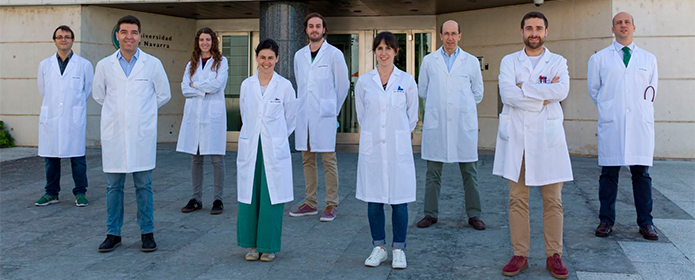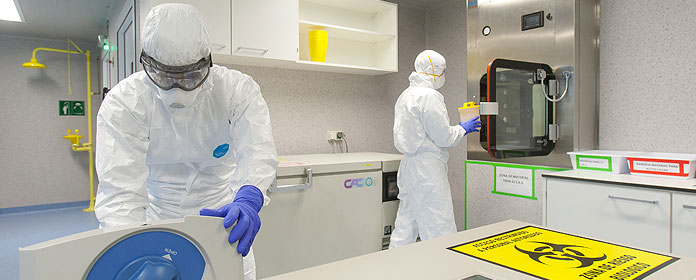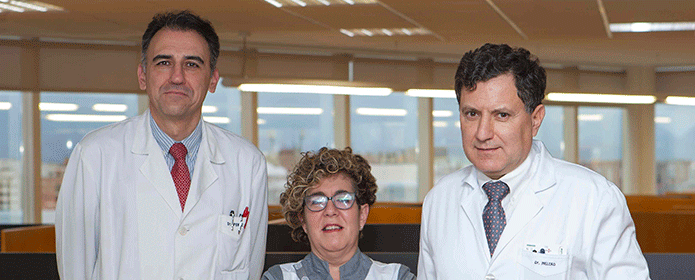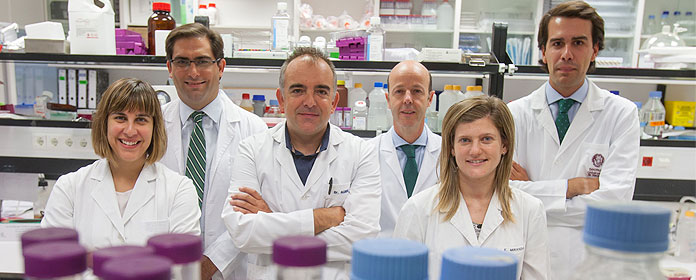25 clinical trials of immunotherapy against different types of cancer, underway at the Clinic and the CIMA
The Clinic and CIMA are centers of reference letter in immunotherapy, which has already shown positive results in advanced melanoma, lung cancer subtypes, head and neck, liver and bladder tumors, among others.
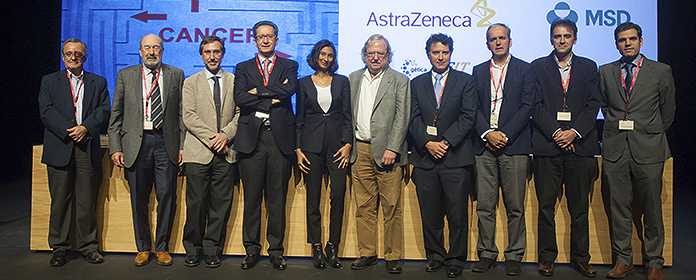
At present, research teams from the Clínica Universidad de Navarra and the CIMA Currently, research teams in the U.S. and Europe are conducting a total of 25 clinical trials based on immunotherapy for the treatment of various oncological pathologies. The main ones are metastatic melanoma and lung cancer, as well as bladder, kidney, head and neck, liver, stomach and cervical cancer, among others.
The Clinic and the CIMA of the University of Navarra, member institutions of high school of research Sanitaria de Navarra (IDISNA), are European reference letter centers in subject of immunotherapy for cancer, in which they have been researching for years. Specifically, since three years ago they developed the first clinical essay of an immunotherapy drug for kidney cancer and another for liver cancer.
Since then, the success of immunotherapy, proven in the survival of patients with different types of cancer, has led to the spread of this new treatment method to numerous centers around the world. This was confirmed in the three scientific conference of the International Symposium on Immunotherapy, organized by the Clinic, the CIMA and the Ramon Areces Foundation at the University of Navarra Museum and funded in part thanks to a financial aid of the Ministry of Economics and Competitiveness with reference letter SAF2015-63007-CIN". The congress , which began last Sunday, October 18, was closed on Wednesday, October 21, and was attended by 350 participants from eight countries.
Objective resultsDr. Ignacio Melero, specialist in Immunotherapy and Immunology at the Clinic and CIMA and co-organizer of the scientific event together with Dr. Juan José Lasarte, researcher of CIMA, underlined the extensive experience of his teams in this emerging line of immunotherapeutic treatments. "As of today, we have some 25 different clinical trials underway. But the most remarkable thing is that about ten of them are programs of study in phase 1 or 2, which we are testing in patients for the first time in the world," he said.
Specifically, Dr. José Luis Pérez Gracia, coordinator , medical director of the Central Clinical Trials Unit of the Clínica Universidad de Navarra, pointed out that in metastatic melanoma, immunotherapy has proven its efficacy with patients who have managed to control their cancer "without worsening of the disease" two years after its administration.
In addition, it also revealed positive results in some subtypes of lung cancer, hepatocarcinoma, head and neck and bladder tumors, among others.
The oncologic pathologies in which the research teams at the Clinic and CIMA have the most experience are metastatic melanoma, lung cancer, head and neck tumors, glioblastoma multiforme (subject of brain tumor), liver cancer and metastatic colon cancer. "We can say," said Dr. Melero, "that we have obtained objective clinical results in advanced stages of the disease that had never been achieved before.
To the success of the drugs, the specialist added"the improvement in predicting which patients may benefit most from the new immunology treatments", thanks to the measurement of parameters at laboratory and of patient samples.
In combination with other therapiesAmong the most relevant speakers at the Symposium, Dr. James Allison, Professor of Immunology at MD Anderson Cancer Center (University of Texas, USA), agreed on the proven success of immunotherapy in some types of cancer, especially metastatic melanoma.
The expert announced for the near future the approval of new immunotherapeutic drugs, especially in cancers such as kidney cancer and other types, "because we already have data of clinical trials that are being evaluated". In the short term deadline, he advanced, "we are going to see more combinations of the two main drugs that act on different types of cancer, but there are three or four more drugs at development that we will be able to have them in the medium term deadline".
But, even more importantly, Dr. Allison highlighted the combination of these drugs with conventional therapies such as radiotherapy or the new genomic drugs, which achieve responses in many patients but do not last long. On the one hand, he noted, "we have immunotherapy that achieves long-lasting, decades-long responses in a quarter of patients, and on the other, there are therapies that get positive responses of a few months in a large issue of patients."
In the combination of both types of therapeutic approaches the scientist based his confidence that"we are going to start curing many types of cancer".
Success in 30% of patientsDr. Antoni Ribas, a specialist in Immunology at UCLA Medical Center (Los Angeles, USA) indicated during congress the limited success that immunotherapy treatments currently have. "This subject of drugs does not make all patients live longer, but only a subgroup, between 30 and 40%, obtain all the benefit". It is in this still minority issue of patients that immunotherapy gets the immune system to "attack the cancer and the cancer disappears from the scanners with a long-term benefit deadline", he specified.
DOWNLOAD COMPLETE PROGRAM
